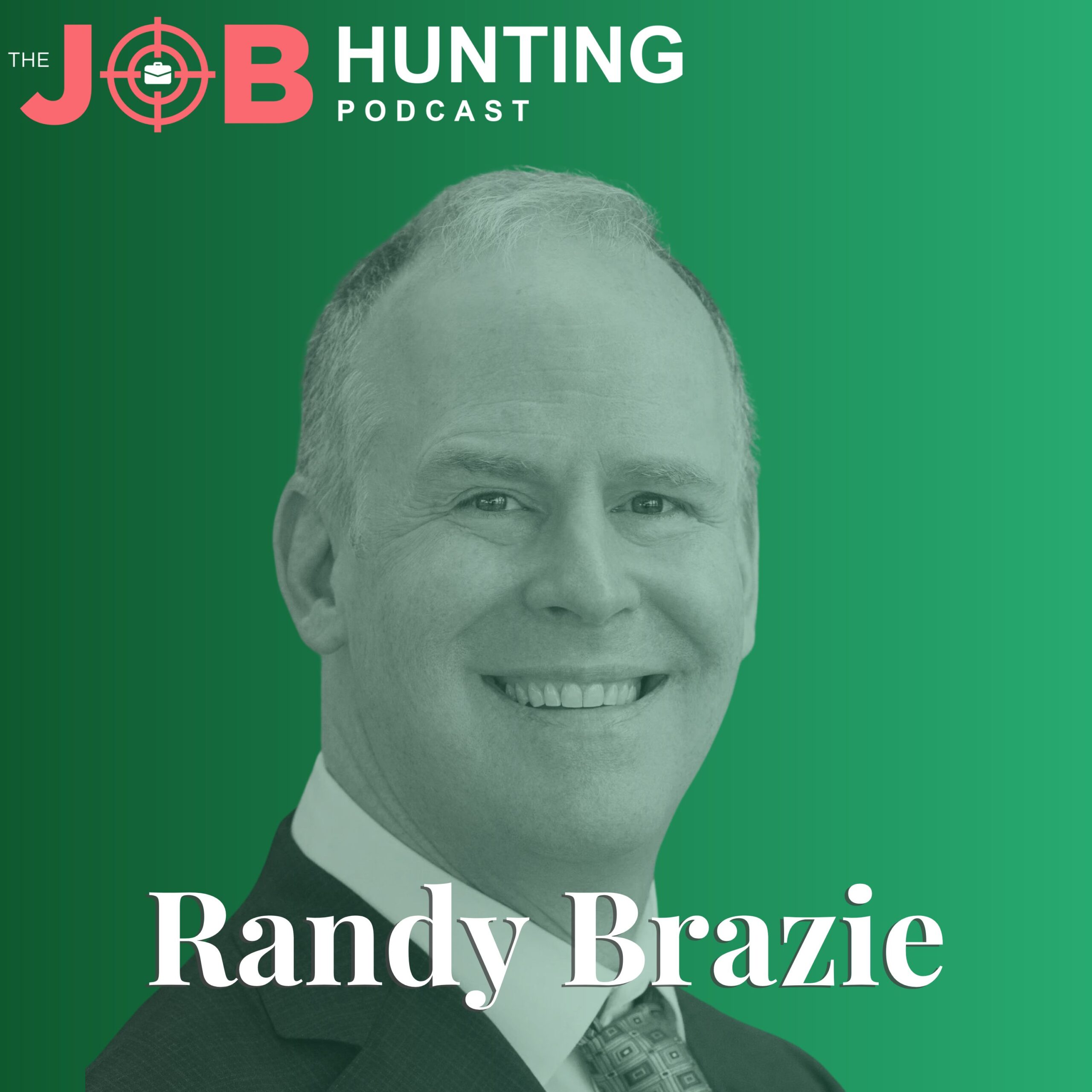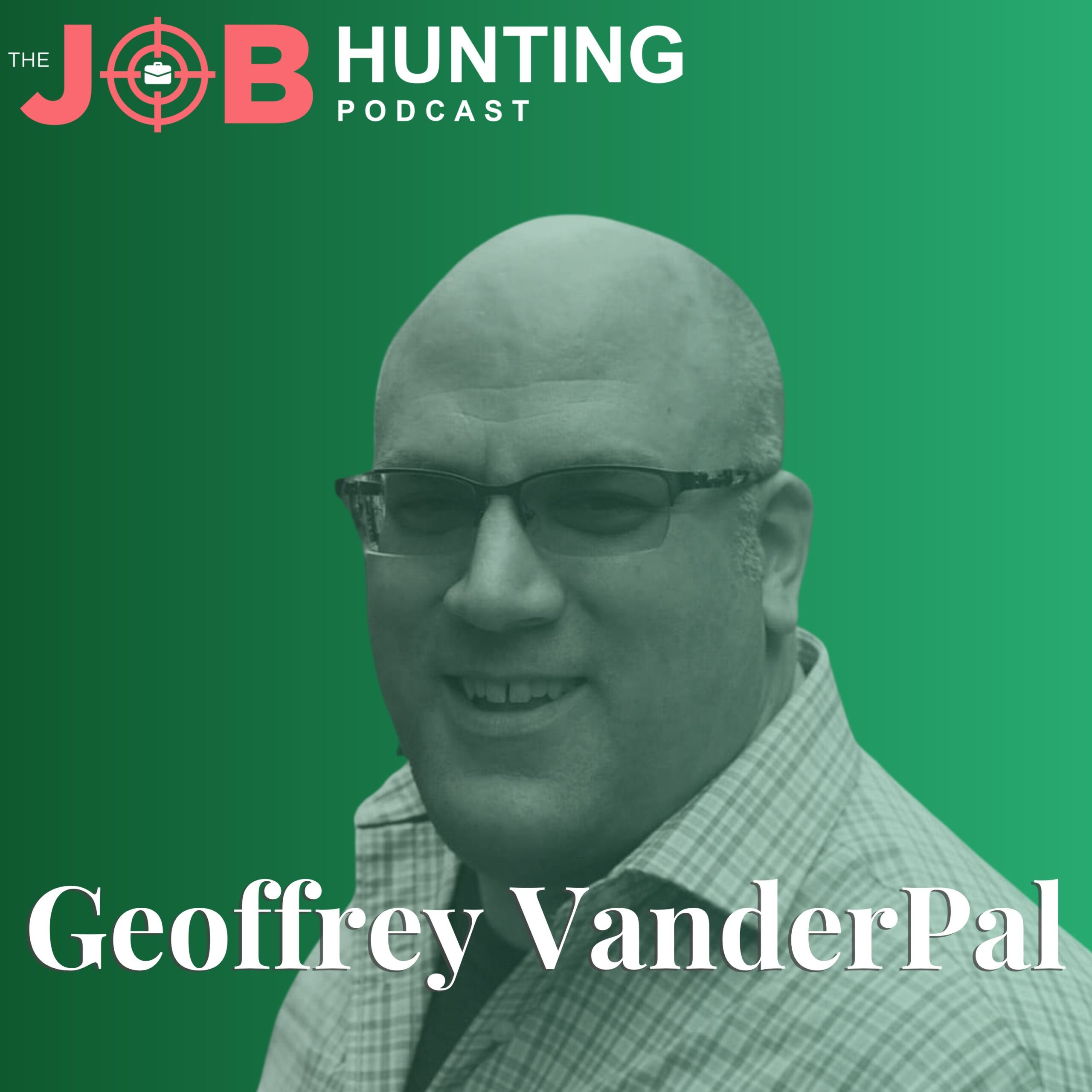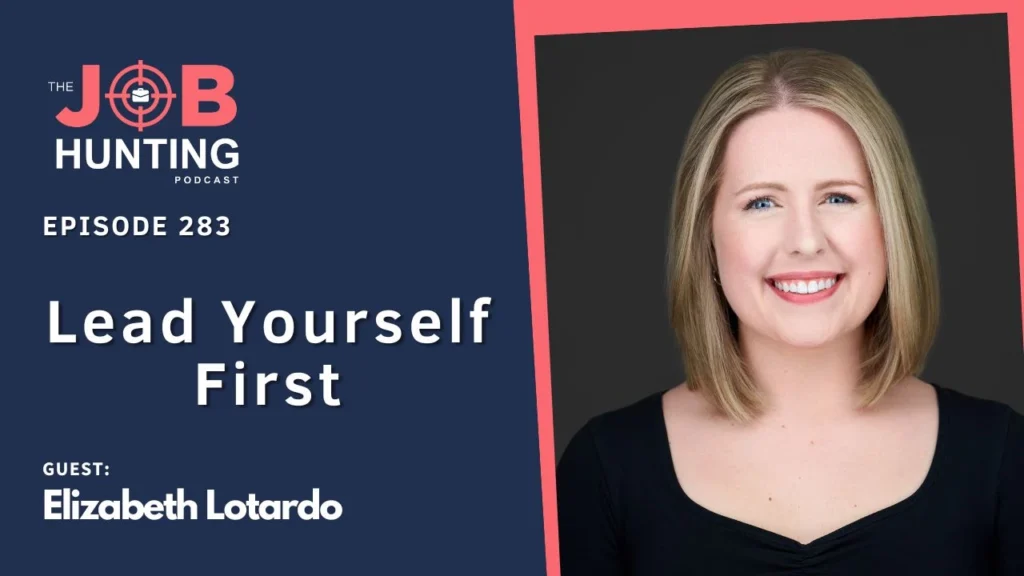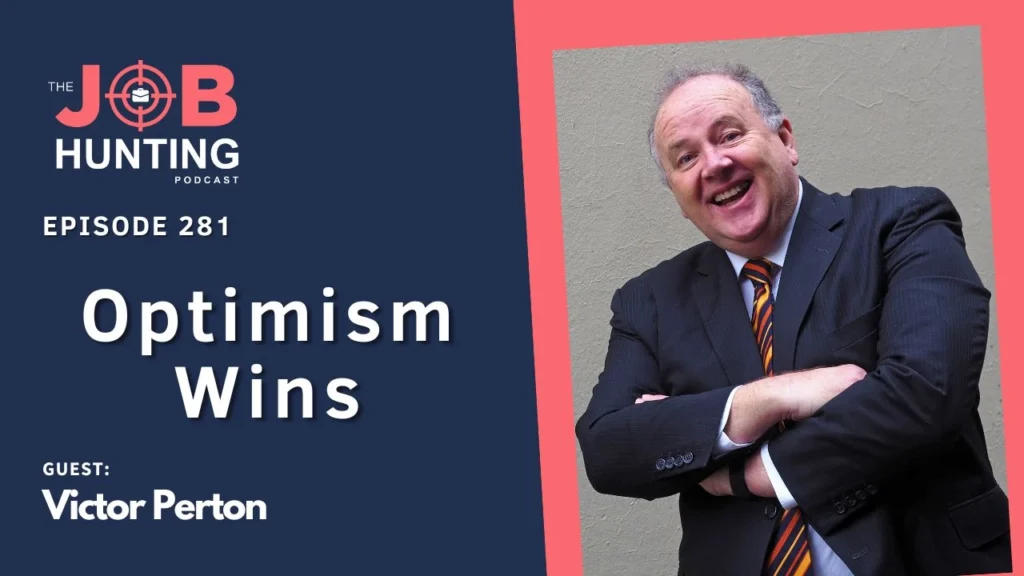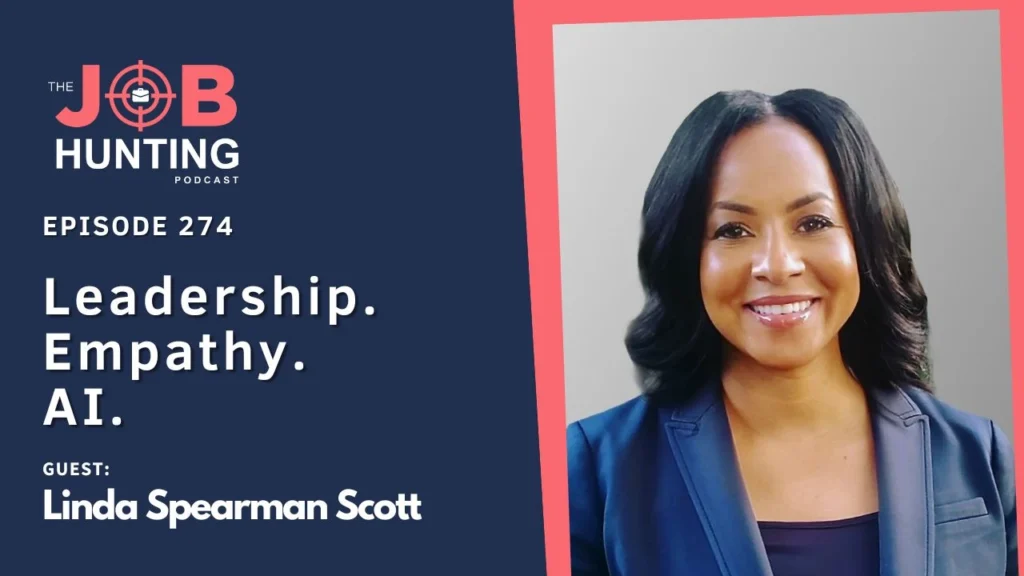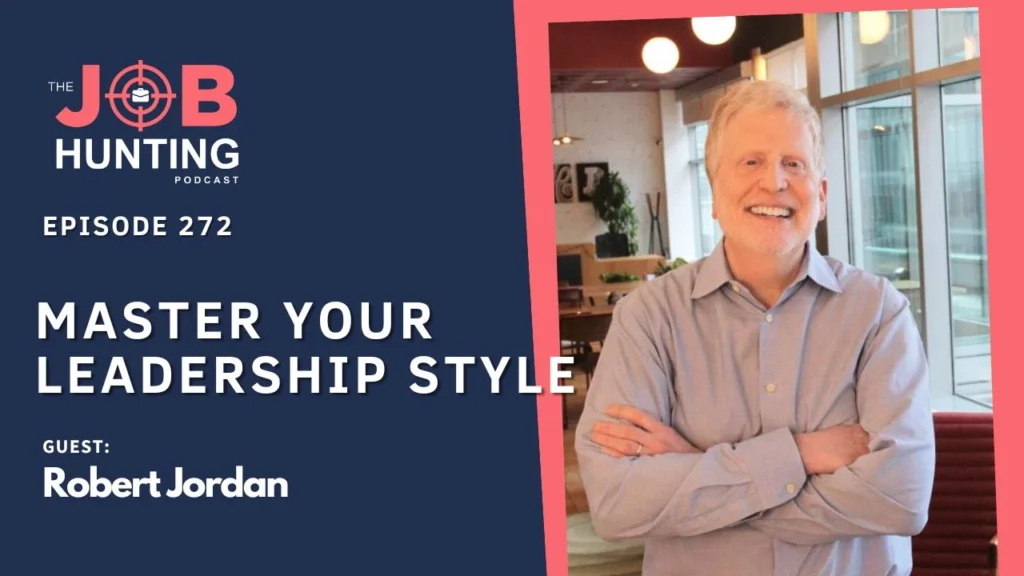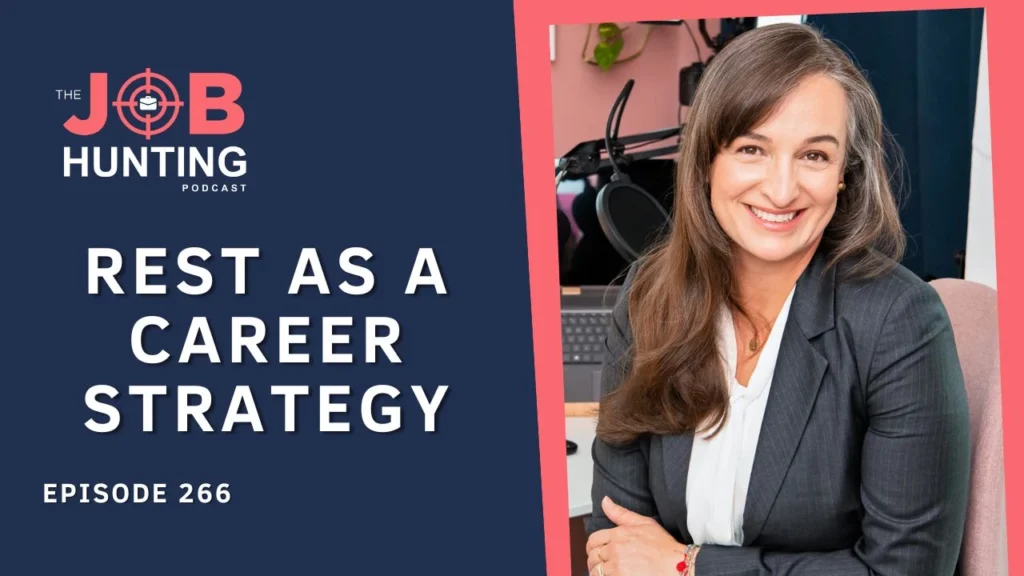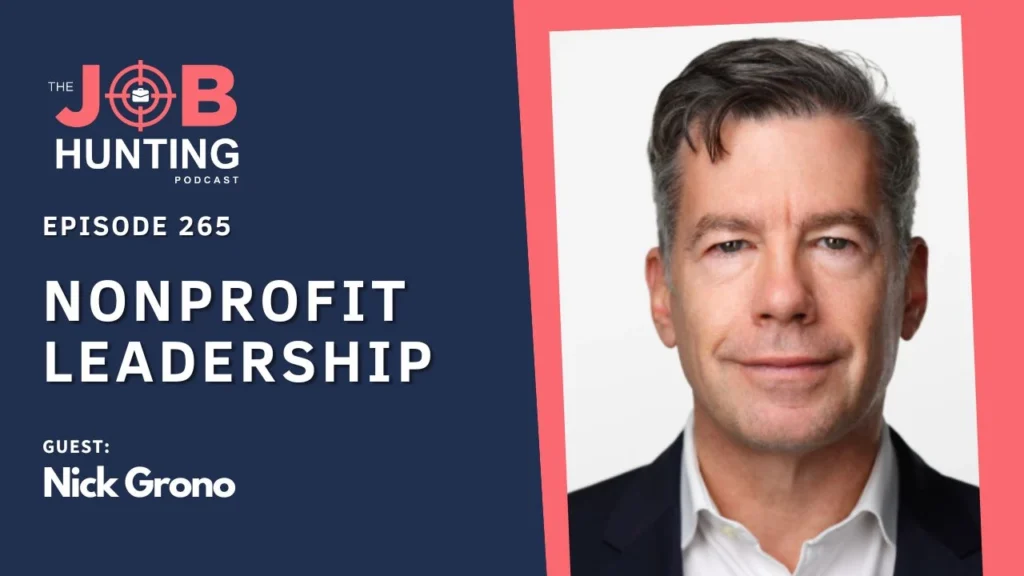Renata: I’m very interested in this partnership, both of you coming together to write an interesting book, The Steadfast Leader, which I’m fascinated by. How did you two meet, and where did this idea come from?
Geoffrey: Well, it’s kind of a funny story how it happened. Randy and I have been friends for years. One night, I guess about three years ago, we were having dinner. I’ve always had an interest in psychology, and being a psychiatrist, you know, that’s certainly his area.
Geoffrey: I asked him some questions about the work and training he was doing in somatic experience. He started explaining what the SEP program is, what he was doing, and the trainings he was conducting. I thought, this is really interesting. This could really apply to leadership and business decision-making. So, I said, “Randy, we should talk more about this. I think there’s some compatibility between business and psychology, and melding them together could create better business circumstances for people.” That’s really how the whole thing got started. And we went from there.
Renata: And Randy, from your perspective in your practice, have you seen a lot of stressed-out white-collar workers? Is that what attracted you to work with your friend Geoffrey?
Randy: That would probably be the majority of the people who come to me, just dealing with the massive amount of stress right now. The additional knowledge I had gained on how to deal with anxiety and stress really opened my eyes. It broadened my understanding and my skill base on how to approach stress, anxiety, and nervousness. This knowledge added an extra layer of information that they didn’t teach us in our psychiatry training.
Randy: Traditional psychiatry and psychology are still very heavily steeped in what we call the cognitive models, focusing on how to work with your thinking brain. There was a lot less attention paid to working with the nonverbal part of the brain, which is closer to the brainstem or what some people call the animal or reptilian brain. Working with that part of the brain is challenging because it doesn’t understand language or words. This is why people often run into roadblocks or difficulties trying to deal with their anxiety by simply using thought or words, which is the traditional approach.
Renata: Oh, that’s fascinating. As you can imagine, people listening to the Job Hunting Podcast struggle a lot with the reptilian brain. They go through periods between jobs or listen to this podcast because they are very dissatisfied with their current jobs. They think about moving on, struggling between the logic brain arguing, “Oh, but you have a job, you have a paycheck, better the devil you know,” and the other part where they start to feel sick and unwell.
Renata: You mentioned that medicine doesn’t train you well for this. What I find with corporate professionals is that if you’re dealing with athletes, you understand stress, both physical and mental. Athletes get coached to deal with it, and they get support from health professionals to get them out of injury. Corporate professionals don’t really deal with that; they don’t have that as part of their education or even part of their discourse, right? So, I’m going to start with Geoffrey and understand more about his personal lived experience.
Renata: Have you had that in your career, Geoffrey? You know, where you felt like the stress was too much and nobody had prepared you for it?
Geoffrey: My first 10 years of corporate experience.
Renata: Oh, there you go.
Geoffrey: Before becoming an entrepreneur, which I’ve been for the last 20 years, I spent nearly 10 years working in the corporate environment in banking and finance, which was a very stressful industry. The position I was in, doing wealth management, was also very stressful. We had very high sales and revenue goals. There was constant pressure all the time to perform, and if you didn’t perform, you were out. It was very stressful, and that’s one of the reasons why I don’t have much hair left.
Renata: And that’s why mine is grey, so there you go.
Randy: No, no one prepared me for that. I didn’t really know how to handle that stress very well. It was very frustrating at times. I wish I had the knowledge I have today to know how to better deal with those kinds of stressors and circumstances and be more mindful of how to handle those situations.
Renata: Yeah. Randy, what does 10 years of stress in the corporate sector do to you physically and mentally?
Randy: Yeah, Renata, that’s a great question. What we do know is that our stress responses are supposed to only kick in if there’s a threat and then turn off pretty quickly once we mitigate that. The problem is, many people, especially in their early careers or in the corporate world, are under constant threat or stress.
Randy: This has a whole host of effects, but very quickly, it increases heart rate, increases blood pressure, and makes you more likely to have a heart attack or a stroke. The body starts to secrete massive amounts of cortisol, which is a stress hormone that has the lovely side effect of making you retain body fat or actually add more body fat. Additionally, what we have found now is that you also have pretty massive increases in inflammation in the body, and we can test that by blood tests. This basically makes you more likely to have cancer, autoimmune diseases, or even other hormone or endocrine problems. So, it takes a pretty big toll, or it might make your hair go gray or get a little bit thin, as Geoffrey alluded to.
Renata: Yes. And we have grown up in a culture where if you work hard and long enough, and if you show that you’re working all the time, good things will happen to you. That is the culture we live in now. I see a change with the new generations cutting back on work hours and being more aware of their need to build a balanced work-life environment for themselves. But we probably have a lot of Generation X professionals like myself, in their fifties and forties, who are really struggling with decades of stress, right? Is this the reason why you decided to write the book?
Randy: Yeah, I mean, basically, since we’re both Gen X as well, we have lived this experience. There’s a lot of stress even in the medical field, right? Physicians have high rates of stress. That was a big factor. And I think really, as Geoffrey mentioned initially, it was about how do we bridge the latest neuroscience, which Geoffrey hadn’t really seen being used in things like organizational psychology or financial biases. Everything has been focused on working with the thinking brain, and nobody in the business world was spreading the info on how to work with the nonverbal brain, where your stress is actually coming from.
Randy: I would add that we’re seeing trends now. You alluded to it with the younger generation, especially Gen Z and even younger Gen Y millennials, where they’re pushing back. They see what happened to Gen X and baby boomers, their parents and grandparents, in terms of working long hours. The days of working for a company for 20 years and getting gold watches are over. That’s probably not coming back in a lot of ways. Companies created this monster themselves with how they’ve treated their employees. To a certain degree, whether it’s purposeful or not, it is retribution for organizations that have mistreated their employees and staff over the years. The younger generation is saying, “We’re not going to put up with this. We’re not going to live that way. We’re not going to be under this kind of stress. We want to have a work-life balance. We want to enjoy our lives.” A combination of how the younger generation has been raised and what they’ve seen from their own parents and grandparents is causing them to push back. I don’t think that’s going to change. It’s frustrating a lot of employers, but like I said, they created this circumstance, and now they have to deal with it.
Renata: That’s true. I feel that even with the older generations, the pandemic and the lockdowns were really a tectonic shift in how they understood themselves and their careers moving forward. You see a lot of people moving out of big cities and wanting remote work and hybrid work and the employee value proposition.
Renata: Yeah. Employers are really struggling to figure out what to do, whether to be in the office or out of the office. How do we deal with that? But talking specifically about the stress that comes from being unemployed, there’s a lot of that now in 2024. The economy is quite slow, and there are a lot of layoffs in the U.S., Australia, and the U.K. The stress that comes from being out of work is substantial, right? Financially, emotionally, and professionally. But I think it’s exacerbated by that reptile brain, Randy, where you feel like you’ve been kicked out of a tribe and you’re in the middle of the savannah. You’re going to die if you don’t find another tribe quickly. So I usually tell my clients when I’m working with them, remember that it’s just an interview. If you don’t get this job, you’re not going to die. Because I think the body sees this as such a threat. I’d love for you to explain that more scientifically than what I’m doing here.
Randy: Yeah, actually, it’s quite fascinating that you observed and noticed that. What you’re catching is what we call neuroception, a term coined by Dr. Porges. It’s the nervous system’s way of perceiving, and it does this unconsciously. Our nervous systems are constantly scanning the environment for signs of safety or danger because the number one rule is survival. If you’re dead, the rest doesn’t matter. What happens then is that the brain in modern times will start to assume or decide that there’s danger, even if there’s really not. So for those folks going to an interview, they consciously know, “I’m not going to get killed, at least I hope not, by the interviewer.” But their nervous system acts as if there’s a hungry tiger about to pounce and literally eat them. This is the disconnect between the two different parts of the brain because your nervous system on that primitive level is acting like you’re in mortal danger. It doesn’t understand context. That’s part of the issue because it doesn’t understand words or context, making it very powerful as it triggers your survival instinct.
Renata: Yes. And in fact, Randy, I don’t know if you have this information, but I see clients all day every day, and they’re all looking for work. When I explain it to them, they tell me, “Oh, that makes sense. I never knew why I was so angry at job interviews or aggressive at job interviews or felt like they were out to get me.” And, of course, many people have experienced this, and I bet Geoffrey can relate as well. As soon as you walk out of a job interview, you immediately feel relaxed and suddenly remember all those great things you should have said during the interview that you forgot to say. Can you explain, Randy, what happens to your brain once it perceives that there is no danger and all the creativity flows back to you all of a sudden?
Randy: It’s frustrating, isn’t it? This is part of the human condition. When your brain, through that neuroception, says, “Whoa, I’m in danger,” it literally activates that survival instinct mechanism. What happens is it actually disconnects your instinctive brain from your thinking brain. This is what we call the insular cortex for anyone fascinated with neuroscience. There’s a highway that connects your thinking brain with your non-thinking brain. The reason is because your brain says if we have to survive, everything else, including thought, doesn’t matter. We have to allocate all our resources to survival. Later, once we’ve decided we’re not going to be killed, we can turn back on the thinking brain and let it figure out what to do. So you can look like you’re responding and talking and taking in that information in the interview, but if your survival instinct is triggered, it’s just not going into your cognitive areas of the brain.
Renata: Yes, I have a question for Geoffrey, but before I go there, I just wanted to say my non-thinking brain does not speak English, Randy. So I know that I’m in that sort of highway zone because I open my mouth and Portuguese comes out even if I don’t mean it to. I’ve been in interviews where the first few syllables were Portuguese words, and then I realize that’s not the right language. I can only be angry with my husband in Portuguese. I cannot be angry in English. It’s just funny.
Renata: But Geoffrey, now that you’ve been armed with all this knowledge from this interesting partnership with Randy, what has it enabled you to do with your clients and with the sort of work that you do in business?
Geoffrey: I’ve taken a more reserved approach, especially in tense or emotional circumstances. Part of that’s from just being aware and practicing mindfulness. Being able to recognize how you’re feeling at that moment in time, why you’re feeling that way, and trying to connect the dots as to why that’s occurring. A lot of people don’t take the time to do that. As simple as it sounds, being able to go, “Wait a minute, I’m feeling very tense or agitated. Why am I feeling this right now? What is it that’s happening that’s triggering this?”
Geoffrey: It could be a number of things. Someone said something to you at work, or you’re in a meeting with someone, and something happens. Something is creating some kind of emotion, and you’re trying to figure out why you’re feeling this way. Taking that moment or step back to think about it, analyze it, and say, “Okay, maybe I’m feeling this way because of this reason.” Once you’ve identified why you’re feeling that way, you can better deal with it going forward. If you get triggered again, you’ll better know how to recognize it and how to deal with it. Instead of responding emotionally, you can respond in a more rational, logical way, not letting that emotion hamper your decision-making or how you proceed going forward.
Renata: Yeah. That’s very important. It’s easier said than done, isn’t it? Sometimes we know we need to do it, but how do we action it? Is it possible for Randy to give us some tips on how to reduce that anxiety and stress that professionals may have when they’re in an unfortunate situation at work or job seeking? What are some of the tips you can give them?
Randy: Sure. Geoffrey raises a very important point. It doesn’t matter that you got triggered; what matters is that you’re aware you got triggered. If the thinking brain can at least hold on to a shred of, “Okay, I’ve just been triggered because my primitive brain is freaking out,” then that gives you a little bit of ability to step back and have some distance. So you’re not reacting as if there’s a real threat.
Randy: You raised a great question: What do you do on the fly, in the moment? This is something we talk about in our book. There are a lot of what we call regulation skills that a person can practice. The idea is to find what works best for them, and what works best in a particular moment may change from time to time. What are these regulation skills? Just a couple of real pertinent examples from somatic experiencing, which was developed by Peter Levine. We know that an important skill to trick your brain into getting out of the freak-out mode is to do what we call orienting.
Randy: Any animal that is looking around and checking out its environment is an animal that’s not in danger. If you think about it, like the phrase “deer in the headlights” describes someone who’s frozen and fixed, like, “Oh, there’s danger.” What the animal or person is doing is saying, “I have to look at the threat and try to figure out what to do.”
Randy: But if we actually just start to look around and check out our environment, try to break the freeze a little, it actually tells your brain, “All right, we’re not in imminent danger. We can look around.” This is what animals do when we’ve studied them in nature. Additionally, you can do very subtle things.
Randy: You could be sitting in a chair like I am now, and I would invite the person to discreetly take a moment to scan their body. Sort of like taking the elevator out of your head, you drop down into your body. Notice where you make contact with the chair or the floor. Pick one spot where you notice that the most. It might be your rear end or back in the chair, your feet on the floor. As you breathe in, imagine that you can direct your breath to that spot of heavy contact. Then, as you breathe out, the breath comes from that spot. You can do that subtly over two or three breaths, and 90 percent of people, if not more, will say, “Ah, I noticed I’m a little more settled.” So there are certain techniques you can do to help settle your system very discreetly. You don’t have to meditate or chant or do something that’s going to freak out your interviewer, but you can quickly start to regulate and calm your nervous system.
Renata: That’s fascinating. What about the lead-up to a stressful event? Some people have an interview coming up a week from now, and instead of spending time preparing for it, they spend time stressing about it. I’m fascinated by this process that happens inside us. There’s an interesting TED talk by Daniel Levitin, a neuroscientist, and he talks about all of the things that went wrong just before he was about to fly on vacation. He forgot the keys inside his house, had to break into his house, forgot his passport, and all sorts of little mistakes. Because I have seen hundreds of clients in my consultations, I hear similar stories from them. They say, “I suffered an accident when I was changing jobs,” or “I was moving house,” or “I was getting divorced.” There were lots of things happening in their lives all at the same time.
Renata: Even in folklore and stories, we see that happening. People say, “Bad things happen in threes,” or “Oh, it’s the third thing.” I’m fascinated that people tend to be late for interviews or hop on the wrong train. Here in Melbourne, we use public transport a lot. People say, “I accidentally got on the wrong train and ended up in a different place.” It happens a lot. That lead-up to a stressful event tends to be a very stressful time. What tips can you give for people to calm down and not feel so threatened by it?
Randy: It really boils down to practicing those regulation skills when you’re not under threat. What happens, especially with things like the orienting I talked about, is that as you practice them, the nervous system starts to respond, “Oh, okay, we’re getting a signal of safety. We can stand down.” Build those skills just like you wouldn’t go into an Olympic competition without having practiced the sport you’re competing in. It’s critical to do that.
Randy: What you’re describing is the brain’s tendency to disconnect. When someone has a high degree of anxiety in their system, they’re more clumsy and forgetful. Your brain is simply acting like, “Whoa, we’re under threat. We know what’s coming.” So practicing these regulation skills is essential. Additionally, it’s not only about calming one’s nervous system; there are a few other things one can do. One is our connection with others. It’s really about learning to reach out to others and not isolate.
Randy: As Steven Porges talks about, the way we get through these things is through our connections. It’s through reaching out, what we call co-regulation. So, reach out to people who support you. And of course, the usual stuff: get good exercise or activity. One way is to sit and see where you make contact with the floor, but you can also get up and walk around, drop that awareness, and focus on the feeling of your feet walking on the ground, whether you’re in shoes or not.
Renata: Huh.
Randy: You’re learning to get your attention away from the brain and notice your body, your sensations, and your environment around you. That’s where it starts to break the cycle of freeze. By focusing on the threat ahead of you, you’re more clumsy or forgetful.
Renata: Mm. Geoffrey, based on all of these things and the work you do with advisory and consulting with clients and HR departments, how is it being received? Do people understand already that there is a problem, or do you need to educate them and let them know that this is something they can fix with your help?
Geoffrey: No, I think it’s really apparent to most people that there is a tremendous amount of stress and anxiety in the workplace. Most people are feeling that; the vast majority recognize it. When we talk about being able to reduce stress, make better decisions under less stress, and handle yourself and others in less stressful situations, it resonates.
Geoffrey: This can be used for conflict management, interviewing, and even for students, as I teach at the university. Students have test anxiety, and these techniques help with that too. There are so many applications for dealing with human stress in different ways using these techniques. It’s quite profound, and you don’t need a degree in neuroscience, psychiatry, or psychology to apply them. It’s simple tips distilled from science over the years, making them accessible for anyone.
Renata: I think for many years employers noticed this, but their solutions were very ad hoc. It’s interesting that we now make fun of it, like, “Oh, here they come with a massage voucher or balloons.” I remember going into a big bank in Australia for consulting work. They were thinking about hiring me just before the pandemic. They were going to implement a new enterprise-wide system in finance, and everybody knew that half of the team would be made redundant once the system was fully functioning. But they had balloons all over the office and mugs with “Here’s the new system.” Everybody knew that at least 30 to 40 percent of these people would go as soon as the system was implemented.
Renata: The lack of transparency and the unscientific way of managing the stress of the situation has made employees very cynical. When you start working with businesses, how are you being received by the employees and the teams?
Geoffrey: Well, I think that’s an interesting point. That’s an example of employers not being fully honest with their employees. A lot of times employers are afraid to be truly honest. The employees know what’s going on. The question is, how are you going to support your employees? How are you going to support them?
Randy: Are you going to be truthful and honest with them and disclose information that should be disclosed to the employees? And also, what kind of support are you going to offer them? If 30 or 40 percent of the people are going to be laid off from that department, you have to be honest and say, “Look, this is probably going to happen. However, we have a package in place. For some of you who may decide to leave or need to be let go, we have these support services.” You need to line up several elements to support your employees so they know they’re being supported and not just tossed out the door. It’s still going to be stressful for some; losing a job is very stressful. There’s no way to completely mitigate that, but you can make the process more tolerable and certainly with more care and support. That can go a long way with people.
Renata: Absolutely. I’m often surprised when I talk to executives looking for work how hard it is for them to explain their leadership style. I’m wondering if Randy and I can discuss leadership and some issues that we talk about often, without any scientific knowledge, Randy, I must admit. Usually, it revolves around the fact that it seems like a lot of our bosses are narcissists, if not sociopaths, right?
Renata: So there’s a lot of that feeling in the corporate world. Geoffrey is laughing, if you can’t see, if you’re not on YouTube. There is a book that I’m a big fan of, The No Asshole Rule. I don’t know if you’ve read that. The No Asshole Rule and another more scientific one, written by an academic here in Australia, called Working With Monsters. I thoroughly recommend both of them. Many of my clients have had to read them.
Renata: Randy, I don’t know if that’s your expertise, but a lot of people struggle with their leaders’ lack of empathy, their inability to communicate well, or having a style that’s not conducive to well-being in the workplace. There’s also some research I’ve read recently about stress hormones. You mentioned stress hormones before. Some research suggests that the stress hormone is actually coming out in perspiration. So that feeling of intuition you’ve had when you walk into a meeting with someone who’s really stressed, and you thought it was just the tone of voice or body language, some researchers now think it might be more than that. Maybe it’s rubbing off on you and potentially making you fat.
Renata: What do you think about that? I found it fascinating when I read it.
Randy: Yeah, it’s interesting. The topic of leadership is something I’ve been reading and studying about because there are different models of business leadership. It’s fascinating to me. If you go back to the original studies, they really focused on traits—what traits does that leader have? If one is cynical, one might say those traits could be sociopathic in nature or narcissistic. Geoffrey has regaled me with many stories of fascinating people he’s worked with before. Over time, the focus shifted to skills or capacities and capabilities that leaders have. It’s more about how they can approach their role with their tools.
Randy: More recently, there’s been a focus on how the leader interacts with, interfaces with, and impacts the team. There’s much more emphasis on the behavioral side of leadership. As a psychiatrist and someone who didn’t start in the business world, when I step back and look at it globally, I see two main themes in leadership. One is, does that person have the knowledge and skills to basically do what they’re charged to do in an organization?
Randy: But the other aspect, which is more down my alley, is the aspect of socialization and interaction between a leader and their team, or what they call the followers. What you’re talking about, Renata, really gets back to this idea of a fundamental concept in what we call polyvagal theory. This theory basically says that as a person, do you give cues of safety, or do you give cues of danger?
Randy: So, when you talked about stress hormones secreting, our nervous systems are actually super attuned to each other. All three of us, as we talk with each other right now, our nervous systems are checking each other out, even though we’re separated by distance. Through that neuroception process, we’re actually trying to determine if each of us is a threat or not. If your boss or leader is what we call dysregulated—angry, irritable, or narcissistic—the other person’s nervous system picks up on that unconsciously. It can be through things like smelling hormone vapors or through other means the nervous system picks up.
Randy: It could be looking at eye movements, eye contact, skin tone color, or muscle tension that you can pick up visually. It’s pretty easy to identify if somebody looks angry or sad, but sometimes it’s much more subtle. Our nervous system, to feel safe, wants to co-regulate with the person in front of us. If that person is either a narcissist or a sociopath, their nervous system picks up that as a cue of danger, even without verbal triggers. This means each of us really has a lot more impact on each other than we give credit for, and it gets back to the whole point of nonverbal communication.
Renata: That is fascinating. I’m going to have to listen to this podcast again to incorporate that in my work with my clients. Geoffrey, what do you think about what Randy just said? Is that something you have experienced in your career, or are you working with clients on those issues at the moment?
Geoffrey: Yeah, I was actually thinking about some other ways as he was talking. I was thinking about emotional quotients versus IQ, intellectual quotients, and social quotients, and their relationship with polyvagal theory and neuroception. This really ties in with various leadership models and modern-day leadership methodologies. Being aware and mindful of yourself and others around you, and how you adapt to those situations, is very important. If you’re dysregulated, as Randy would say, or emotionally charged, where you’re not thinking through and being mindful of your decisions and responses to your environment, it can have critical and profound negative effects on both yourself and the people around you.
Geoffrey: People who are not mindful and aware of what they’re projecting cause a lot of problems for themselves. Sometimes you need to sit down with individuals when you see them acting in inappropriate ways or ways that damage them professionally and socially. Being honest and frank with them, exploring why these situations may be occurring, and trying to get to the root of the problem is important. Engaging in such conversations without making them defensive is key, and that’s something Randy could talk more about—how to engage someone in that type of conversation without offending them or making them defensive. There are soft approaches one could take to do that, and I think it’s critically important because most people are not really aware of how they project themselves.
Renata: Yes, yes, I’d like to talk about that on an even bigger scale because I’m fascinated by how we can spiral up or spiral down by engaging with people, right? Many years ago, I read research indicating that women have a higher risk of spiraling down if they chit-chat with each other. They have a tendency to whinge to the point where they finish a conversation and feel worse than when they started. I’ve seen that with some of my friends, being a woman myself. I find that really interesting.
Renata: I also wonder if this issue isn’t limited to gender situations but occurs, for example, during a major organizational restructure where dozens or hundreds of thousands of people will be made redundant. Here in Australia, one such restructure has just been announced where over 2,000 people will be made redundant by the end of the year. Lots of colleagues will now be chit-chatting, and it worries me that they might spiral down by complaining about the company and the market, saying it’s a terrible year and there aren’t many jobs advertised. They could end up feeling worse after such conversations. How can we engage people, Randy, in a way that prevents this sort of situation? Can we stop it, or is it natural for us to have these conversations? Is it probably better to have conversations than no conversation at all?
Randy: Yeah, that’s another important point you’ve observed. We are hardwired to look for what’s wrong. The brain, focused on survival, would rather assume there’s a problem and be wrong rather than not assume there’s a problem and end up dead. This is an extreme version, but we are hardwired this way. This is why social media can be so powerful. When people get together and start with that kind of negative, stressed-out whinging, it’s very self-reinforcing.
Randy: So, what do we do about that? Number one is acknowledging this is how we’re hardwired. Our brains are only doing what they’re built to do because, originally, that was adaptive for us to survive when there were actual threats. These days, one of the foundational things we teach is self-awareness. It’s the old “know thyself.” Each person needs to be aware of how they tend to present, what their baseline autonomic nervous system state is.
Randy: What I mean by that is, am I someone who tends to go into fight mode, wanting to argue and attack? Or do I go into flight mode, wanting to get out of there? Or do I shut down, collapsing and becoming very passive? If we know where we tend to go, we can then use regulation skills. This is one of the things we offer with our consulting and training, teaching a detailed list of skills that people can try so they can find what works for them and practice them.
Randy: By drawing on those skills, you can say, “Oh, I’m starting to go into fight mode. I need to downregulate myself.” People can then instinctively or more intuitively pull on those skills to get themselves off the on-ramp onto the freeway of rage. This is really how we do it. It’s also a matter of making a conscious decision to limit how much whinging we do.
Randy: I’ll give myself an hour a night to have a good whinge about things. But after that, I need to stop and try to focus on some more positive things. That could be something as simple as enjoying time with a pet, looking outside and enjoying the view of nature when it’s not 42 degrees here, or maybe going for a nice walk on the beach. Find things that will start to feed signals of safety to your brain. Often, they’re really simple things that, as Geoffrey alluded to, you don’t need to be a psychiatrist or a neuroscientist to understand and use.
Renata: Yes, that’s the right approach. I worry about listeners who might be hearing all of this and thinking, “But it’s different for me.” I usually hear that, especially if someone has been unemployed for an extended period of time. That’s when the mental state of the job seeker tends to deteriorate, and they start to doubt themselves and lose a lot of confidence.
Renata: What would you say to someone who has been unemployed for quite some time? 2024 has been a really tough year. I don’t know if you’re following this, but there aren’t many jobs advertised this year. For my listeners and my clientele, managers, corporate professionals, people with more experience in the corporate world, I think they will all get jobs eventually. I really do. I’m confident about that. But it’s probably going to take longer, and it has nothing to do with the individual job seeker; it has to do with the environment.
Renata: We have elections happening, a war, lower consumer sentiment—organizations are in a wait-and-see mode, especially in the U.S. They’re waiting to see what happens at the end of the year before they start spending money and lifting hiring freezes. How do we maintain ourselves over the long term? I’d love to hear from both of you. What would be your advice for listeners thinking, “Oh no, it’s different for me because I’ve been job hunting for a long time”?
Geoffrey: At a higher level, companies tend to tighten up, and of course, it filters down to individuals. This isn’t terribly unusual. Because of the unknowns, people get concerned, worried, frustrated, sometimes angry, and very nervous. But at the end of the day, it’s all going to be okay. I have the same conversation with my students who worry about getting jobs after graduation, what will happen with the new president, the economy, global issues in the Middle East or China and Taiwan—the list goes on. There are always ongoing issues, problems, whether local, national, or global. It’s just the way the world works.
Geoffrey: We need to get a little more comfortable with the fact that there will always be change. Things will continue progressing forward. Trying to keep a more positive outlook is important, though difficult. Looking back at the last century and the last few decades, we’re still here. We’re progressing forward. We may not like all the changes occurring all the time, but we’re moving forward, and things are going to be okay. That doesn’t mean we won’t hit some rough patches along the way—that’s life. Understanding that life will have its ups and downs, and being able to work through that with less stress, is crucial.
Randy: And being mindful of that and using some of the techniques that Geoffrey and I work with individuals on is very helpful in handling stress and difficulties. But I would just say in general to people, don’t worry, it’s going to be okay. It really will be.
Renata: Yes. What about you, Randy?
Randy: Yeah, leaping from that, my role is more focused on the individual. It really gets back to how you get through this with good self-regulation and self-care techniques. These are the same techniques we use when people are dealing with depression or general anxiety not related to jobs. Physical activity is important—get your body moving. Focus on anti-inflammatory foods in your diet, avoiding too many refined sugars. There are a lot of studies in psychiatry showing how inflammation negatively affects mood and anxiety. Learning regulation skills, maybe doing yoga, picking up meditation, and getting support, whether from friends, a spiritual community, or a therapist, are all crucial. Do the things to make sure you take care of yourself.
Randy: Another researcher and thought leader in the field is Kristen Neff, who focuses on self-compassion, which is also huge. You see this in positive psychology. She does a lot of teaching and workshops to help people with that. The key is if you go into an interview stressed out and aren’t regulating yourself, you’re sending cues of danger to the interviewer, which they unconsciously pick up. It can make them more unsettled. It doesn’t mean it will ruin your interview, but the more you can take care of yourself and work on these regulation skills, the better you’ll do in selling yourself during the interview process.
Renata: Absolutely. Now, when you’re working with clients, both of you, are you working with corporate clients, right? You’re working with the employer, is that correct? Tell me about the sort of work you enjoy doing and that you’re keen to expand. If anyone’s listening who has the ability to bring you on board to their organization, they can get in touch with you.
Geoffrey: Yeah, we certainly are. From the book, we developed an online on-demand training available through our Neuro Consulting Group website, which provides a walkthrough of the main concepts of the book and works on some skills. We’ve been focusing on beefing up live trainings, which can be online or in person if a corporation wishes to have us come and do a workshop, for example.
Geoffrey: We’ve brought on board Dr. Abby Blakeslee, a well-known psychologist in somatic psychology. She was my mentor in teaching me somatic experiencing and has extensive experience teaching and talking worldwide. She loves Australia, by the way.
Renata: What is somatic experiencing? I’m not familiar with that term.
Randy: Somatic experiencing is a way of working with a person’s physiology, viewing them as a human animal, to help them overcome stress and trauma stuck in the nervous system. It’s very helpful for things like post-traumatic stress disorder, but it can also address simpler forms of what we call shock trauma.
Randy: You could have had a bad accident, you know, hiking, rock climbing, or skiing, and your nervous system goes back into that fight-or-flight mode, thinking things are dangerous. Peter Levine developed the technique in the 70s as a way to help people actually let go of the trauma because traditional therapy models help to a certain extent, but they never fully get it out of that more primitive part of the brain.
Randy: People can look up somatic experiencing on their website, traumahealing.org. They can get a good feel for what it’s about. That’s a modality I’m trained in, as well as Dr. Blakeslee. Abby is really going to be working with us on bringing this to as many different types of organizations and industries as possible. It’s not just those of us working in mental health who can benefit from these concepts, but also people in the business world. That’s why Geoffrey is here and so supportive and enthusiastic about bringing this to the business community.
Renata: And I do know, Geoffrey, the trainings have some CE credits?
Geoffrey: Yes, they do. If someone watches our trainings, which are about seven hours of content they can purchase and watch on their own time, they can get CE or PDU credits. It’s available on our learning management system through our website, neuroconsultinggroup.com. It allows them to get credits with the CFP board for certified financial planners, the PMI, Project Management Institute, and their various certifications, as well as SHRM, the Society of Human Resource Managers. So, it’s a nice added benefit.
Renata: I love it.
Geoffrey: We really appreciate it.
Renata: That is very, very good. I think the work you’re doing is groundbreaking. It’s information that organizations should have and implement in the workplace. If it’s combined with their strategies and considered as they develop growth strategies, restructure strategies, or whatever they need to do to keep the business going, it will be so much more successful. It will help everyone go through change, transition, and transformation in a healthier way.
Renata: I’m really excited about what you’re doing and very happy that you joined me for this chat. I will have all the links to your work and your book in the episode show notes so people can easily find you. I was really delighted to talk to you and learn more about your work. Thank you so much for coming on the podcast. I hope some of the listeners will reach out and get in touch.
Randy: Thank you so much. It’s important to us, as you said, to help and support people in various business fields because it makes a huge difference. We’re seeing that in my field, where people are coming to professionals like me, so it’s only natural that this can benefit others as well.
Renata: Fantastic. Thank you.

